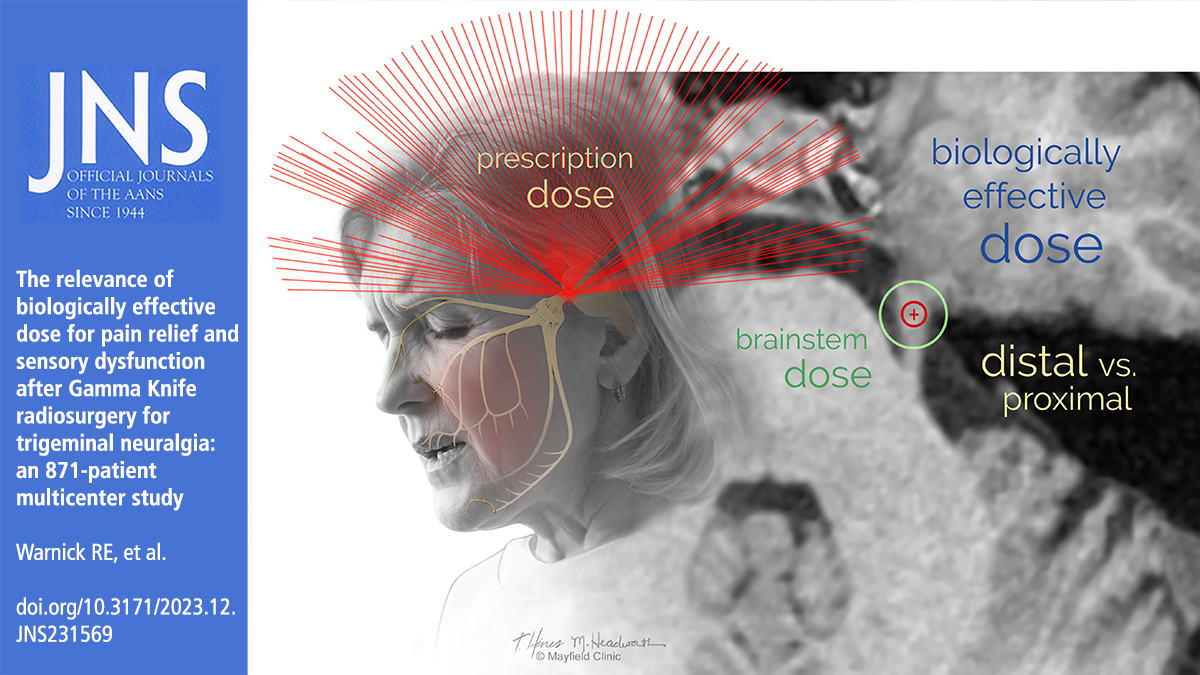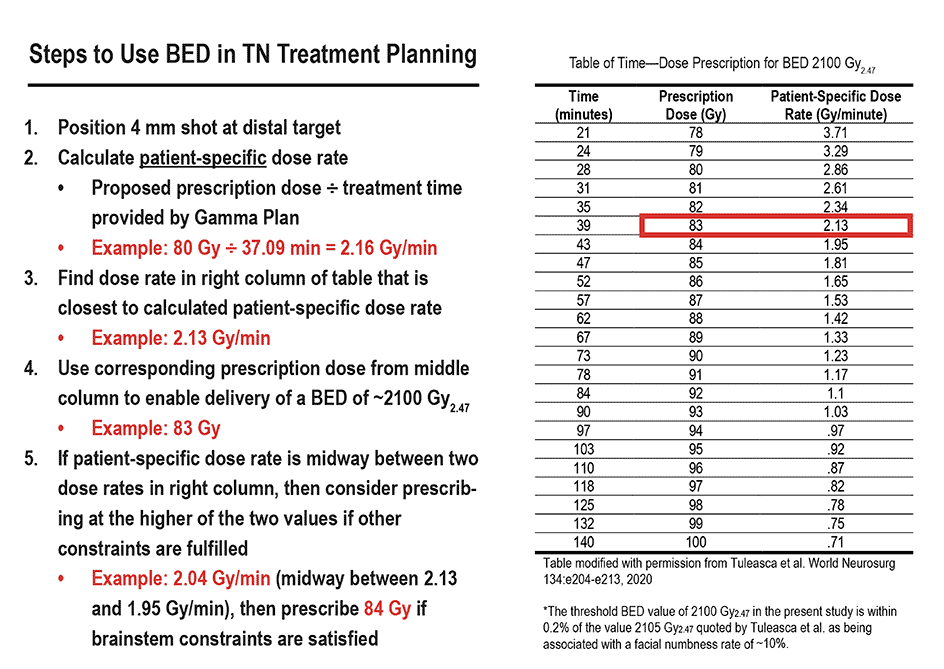New research advances use of Gamma Knife radiosurgery for trigeminal neuralgia
Mayfield Brain & Spine researcher leads largest-ever study, outlining effects on pain relief, medication use
CINCINNATI – A groundbreaking study of patients undergoing Gamma Knife radiosurgery to reduce symptoms of trigeminal neuralgia will help physicians develop personalized treatment plans to give patients long-term pain relief and reduced medication use.
Led by Mayfield Brain & Spine neurosurgeon Dr. Ronald Warnick, the newly published research is the largest-ever retrospective data study of patients with trigeminal neuralgia, the often-misunderstood neurological condition marked by episodic facial pain usually caused by vascular compression of the trigeminal nerve.

The study included 13 centers from the International Radiosurgery Research Foundation documenting clinical outcomes of 871 patients with trigeminal neuralgia who underwent Gamma Knife radiosurgery. It was published online in February in the Journal of Neurosurgery, the publication of the American Association of Neurological Surgeons, and will be in the Journal's print edition later this year.
Trigeminal neuralgia patients undergoing Gamma Knife radiosurgery typically are treated with a standard dose of radiation (80-90 Gy) and can expect a 90% probability of pain relief and 2% risk of bothersome facial numbness, Dr. Warnick said. Biologically effective dose (BED) is a more accurate measure of the biologic effect of radiation, and therefore is a better predictor of treatment outcomes after Gamma Knife radiosurgery for trigeminal neuralgia. BED is dependent on prescribed dose, duration of treatment and individual patient geometry.
Dr. Warnick and his team asked the following study question: Is BED superior to prescribed dose in predicting pain relief and facial numbness in trigeminal neuralgia patients undergoing Gamma Knife radiosurgery as a first procedure?
The study conclusions suggest a more complex interplay of factors:
‐ Treating the distal trigeminal nerve (away from the brainstem) may be superior.
‐ BED was a better predictor of outcomes when treating the distal trigeminal nerve.
‐ Prescribed dose was more predictive when treating the proximal trigeminal nerve (near the brainstem).
‐ Maximum brainstem dose correlated with the risk of bothersome facial numbness.
The paper provided a look-up table for neurosurgeons and radiation oncologists to integrate BED into treatment planning.

"This look-up table will help physicians calculate the biologically effective dose during Gamma Knife radiosurgery and develop a personalized treatment plan for each patient," Dr. Warnick said. "We believe that BED is the strongest predictor of short- and long-term pain relief, whereas maximum brainstem dose is associated with the development of bothersome facial numbness."
> > Review the complete article here.
Dr. Warnick is one of the world's leading researchers and clinicians treating trigeminal neuralgia, and co-director of the Gamma Knife Center at The Jewish Hospital-Mercy Health. This landmark study is the latest example of the decades of national leadership demonstrated by Mayfield clinicians in conducting original research to advance the practice of neurosurgery. It is also in the spirit of Mayfield's legacy of excellence in clinical care, education and research. Mayfield physicians and leaders are committed to academic research that will translate into clinical innovation and improved patient outcomes.
"Mayfield's commitment is to provide patients with the best neurosurgical care," said Mark Vorherr, chief executive officer. "Dr. Warnick's distinguished record of exemplary patient care is only enhanced by his impeccable scholarship. With this latest study, he has created a platform for future innovation in treatment of trigeminal neuralgia through Gamma Knife radiosurgery, and honored the best traditions of Mayfield Brain & Spine."
About Mayfield Brain & Spine: Founded in 1937, Mayfield Brain & Spine is a nationally known independent neurosurgery practice, with 21 neurosurgeons, one orthopedic spine surgeon and six physicians specializing in interventional pain treatments or Physical Medicine & Rehabilitation. Surgeons see patients at six offices and perform surgeries at the region's leading health systems, treating brain tumors, spinal deformity, strokes and a variety of other disorders of the brain and spine. Patients can receive outpatient surgeries at the Mayfield Spine Surgery Center. With about 275 total associates, Mayfield served more than 30,000 patients from 39 states in 2023. Mayfield also was named one of the region's "Best Places to Work" in 2022 in a competition sponsored by the Cincinnati Business Courier.
May 13, 2024
FOR IMMEDIATE RELEASE
CONTACTS:
Cliff Peale
Communications Department
cpeale@mayfieldclinic.com
513-569-5236
Related links:
Q&A: Gamma Knife radiosurgery as a treatment for trigeminal neuralgia

